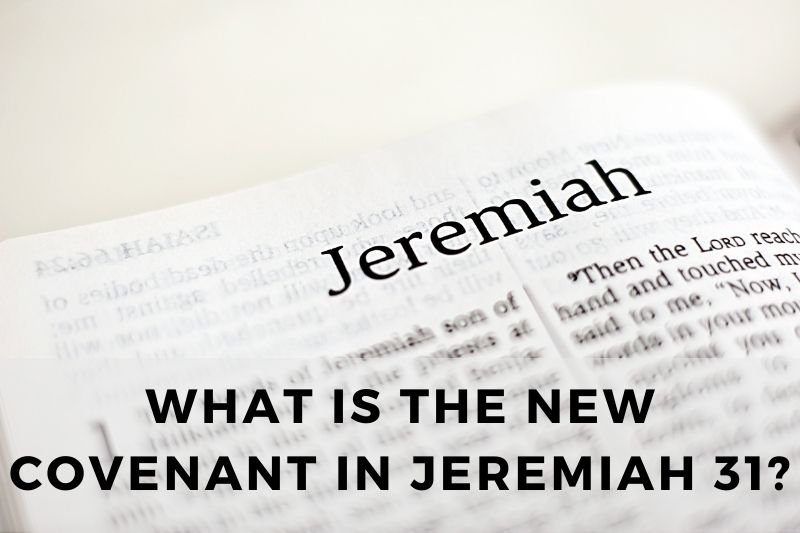
The concept of the New Covenant, as prophesied in Jeremiah 31, holds profound significance in the narrative of God’s relationship with His people. In this article, we delve into the depths of Jeremiah’s prophecy, exploring its historical context, its promises of internal transformation and forgiveness, and its ultimate fulfillment in Jesus Christ. We’ll unravel the layers of meaning behind the New Covenant, understanding its enduring relevance and impact on the lives of believers today.
What Is the New Covenant in Jeremiah 31?
The New Covenant in Jeremiah 31 refers to a profound promise made by God to His people, particularly the nation of Israel. In this chapter of Jeremiah, God reveals His intention to establish a new covenant with His people, one that would differ significantly from the covenant made at Mount Sinai. What does that include? Let’s investigate the specifics of the New Covenant as outlined in Jeremiah 31:
#1. Divine Initiative
The New Covenant is initiated by God Himself. In Jeremiah 31:31, God declares, “Behold, the days are coming, declares the Lord, when I will make a new covenant with the house of Israel and the house of Judah.” Unlike the Old Covenant, which was conditional on Israel’s obedience, the New Covenant is rooted in God’s grace and sovereignty.
#2. Internal Transformation
One of the key features of the New Covenant is the internal transformation it brings about in the hearts of God’s people. Jeremiah 31:33 states, “I will put my law within them, and I will write it on their hearts.” Unlike the external adherence to the law under the Old Covenant, the New Covenant promises a deep, inward change whereby God’s people will naturally desire to obey Him.
#3. Personal Relationship with God
Another significant aspect of the New Covenant is the personal relationship it facilitates between God and His people. Jeremiah 31:34 declares, “For I will forgive their iniquity, and I will remember their sin no more.” Through the forgiveness of sins and intimate communion with God, the New Covenant offers a restored relationship that was marred by disobedience under the Old Covenant.
#4. Universal Application
While initially addressed to the nation of Israel, the New Covenant has universal implications. Through the life, death, and resurrection of Jesus Christ, the fulfillment of the New Covenant extends to all who believe in Him, regardless of ethnic or religious background.
#5. Fulfillment in Jesus Christ
Ultimately, the significance of the New Covenant is realized in the person and work of Jesus Christ. He is presented in the New Testament as the mediator and guarantor of the New Covenant (Hebrews 8-10). His sacrificial death on the cross provides the basis for the forgiveness of sins and the establishment of a new and everlasting covenant between God and humanity.
Closing Thoughts
As we conclude our exploration of the New Covenant in Jeremiah 31, we’re reminded of the timeless truth it embodies: God’s relentless pursuit of relationship with His people. Through the promise of internal transformation, forgiveness of sins, and universal accessibility, the New Covenant stands as a testament to God’s grace and love.
Its fulfillment in Jesus Christ offers hope and redemption to all who embrace it. May we continually be reminded of the profound significance of the New Covenant in shaping our faith and guiding our journey with God.
